European low-cost carrier Ryanair and Hong Kong’s Cathay Pacific have announced new commitments to sustainable aviation fuel produced by the Finnish waste-to-fuel provider Neste. Ryanair has announced it will operate about one third of its flights from Amsterdam’s Schiphol Airport with a 40% blend of SAF, as part of its commitment to 12.5% SAF use across its operations by 2030, while Cathay Pacific has launched a pilot programme through which its corporate customers can contribute to the purchase of SAF to help offset the emissions of their business travel or air freight shipments. Both deals coincide with a 15-fold increase in SAF production by Neste, from 100,000 tonnes per year at the end of 2021 to 1.5 million tonnes per year by early 2023, through expansion of its Singapore and Rotterdam refineries, reports Tony Harrington.
“SAF is a cornerstone of our ‘Pathway to Net Zero by 2050’ decarbonisation strategy,” said Thomas Fowler, Director of Sustainability at Ryanair. “This new blend will power a third of Ryanair flights at Amsterdam Airport Schiphol while reducing greenhouse gas emissions by over 60%.” Based on the latest flight listing by Schiphol Airport, which shows 66 Ryanair departures per week to Dublin and Malaga, the airline’s SAF partnership with Neste Holland initially will support 22 Boeing 737 flights per week from Amsterdam, though the timeframe for implementation and details of SAF flights have not been announced.
Aviation data group OAG has just ranked Ryanair the world’s fifth largest airline by flight frequency, trailing only American, Delta, United and Southwest. To help achieve its 2050 emission reduction targets, Ryanair expects SAF to account for 34% of its decarbonisation. Technological and operational improvements will deliver another 32%, offsetting and “other economic measures” 24%, and, subject to a successful implementation of the European Union’s Single European Sky proposal, reform of air traffic management will deliver a further 10% cut in the airline’s emissions.
A key element of Ryanair’s decarbonisation programme is fleet renewal, through the introduction of up to 210 Boeing 737-8200 MAX twinjets, 65 of which are expected to be in service by the start of the northern hemisphere summer. These aircraft offer 4% more seats than the airline’s current fleet of 737-800 jets, but burn 16% less fuel, and are central to another Ryanair target, a 10% reduction in CO2 emissions per passenger kilometre, from the current 66 grams to 60 grams by 2030. As well, the airline recently partnered with Dublin’s Trinity College to establish the Ryanair Sustainable Aviation Research Centre to study initiatives including SAF and zero-carbon aircraft propulsion systems.
Cathay Pacific, an early adopter of sustainable aviation fuels, has also intensified its commitment to SAF, launching a pilot Corporate Sustainable Aviation Fuel Programme through which commercial customers can offset the emissions of business travel by their employees or the movement of freight by air by contributing to the use of SAF on Cathay passenger and cargo flights from Hong Kong International Airport. In what the airline calls “the first major programme of its kind in Asia”, Cathay has announced participation of an initial eight customers – AIA, Airport Authority Hong Kong, DHL Global Forwarding, HSBC, Kintetsu World Express, PwC China, Standard Chartered and Swire Pacific. The SAF for the Cathay programme will be provided by PetroChina and Shell, and produced by Neste from used cooking oil and animal fat waste.
In 2014, Cathay was the first airline to invest in US-based Fulcrum BioEnergy, a pioneer in the development and commercialisation of SAF produced from municipal solid waste, from which it has committed to acquire 1.1 million tonnes (3.1 billion litres) of SAF over 10 years, commencing in 2024, equivalent to 2% of its total fuel requirements in 2019. The airline also pledged last year to a target of 10% SAF use across its operations by 2030 and was one of nine members of the oneworld airline alliance to commit last November to the collective purchase of 350 million gallons (1.3 billion litres) of SAF at San Francisco International Airport over a seven-year term, beginning in 2024. That fuel will be developed by US-based producer Aemetis Carbon Zero from waste wood converted to cellulosic hydrogen, then combined with waste materials, non-edible sustainable oils and zero carbon intensity electricity.
“We continue to pioneer our industry’s move towards more substantial use of SAF, especially in Asia,” said Augustus Tang, Cathay Pacific’s Chief Executive Officer. “Last year we were among the first carriers in the world to announce a target of 10% SAF for our total fuel use by 2030. We have made significant progress since then and are pleased that uplifting SAF from Hong Kong International Airport is now a reality with the strong support of the local authorities and fuel suppliers. We see the launch of this Corporate SAF Programme as an important step for us to engage other like-minded organisations, and a first step in sending an important demand signal to the SAF supply chain that there is firm interest in the region, not only from airlines, but also the aviation value chain, all the way to end users for both passenger and cargo transportation.”
Photo: Ryanair’s Head of Sustainability, Steven Fitzgerald, and Neste’s VP Europe, Renewable Aviation, Jonathan Wood at Amsterdam Schiphol Airport


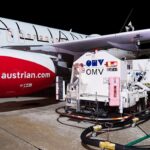
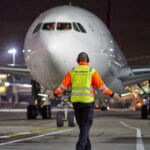
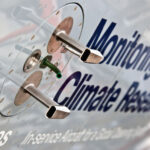

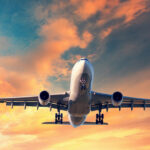
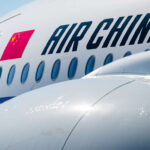
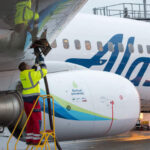
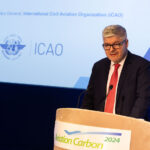
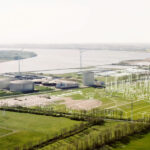
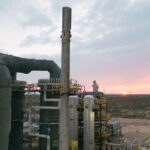
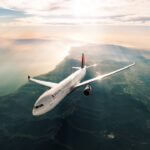
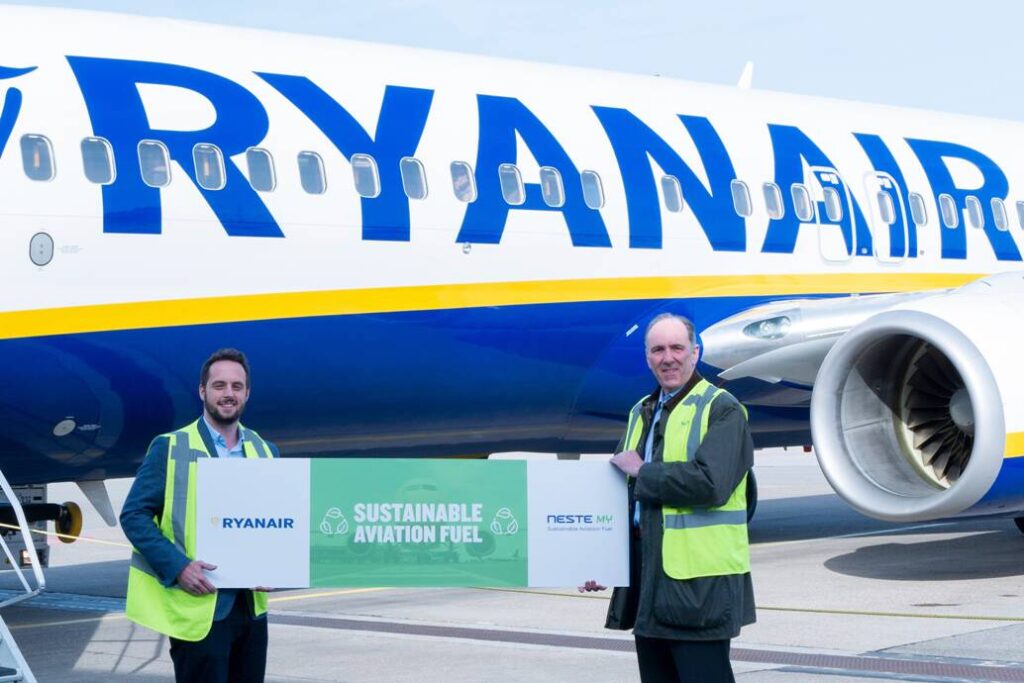

More News & Features
Progress on decarbonising the airline sector has been slow this year, says IATA chief
EASA releases status report on Europe’s SAF production and readiness to meet blending targets
New study highlights differing strategies and barriers to decarbonising aviation in UK and Europe
Commentary: China’s fair and equitable solution to civil aviation’s climate challenge
New partnerships formed to drive e-SAF production in Nordic markets
IAG continues to go big on e-SAF as it inks 10-year offtake agreement with Infinium